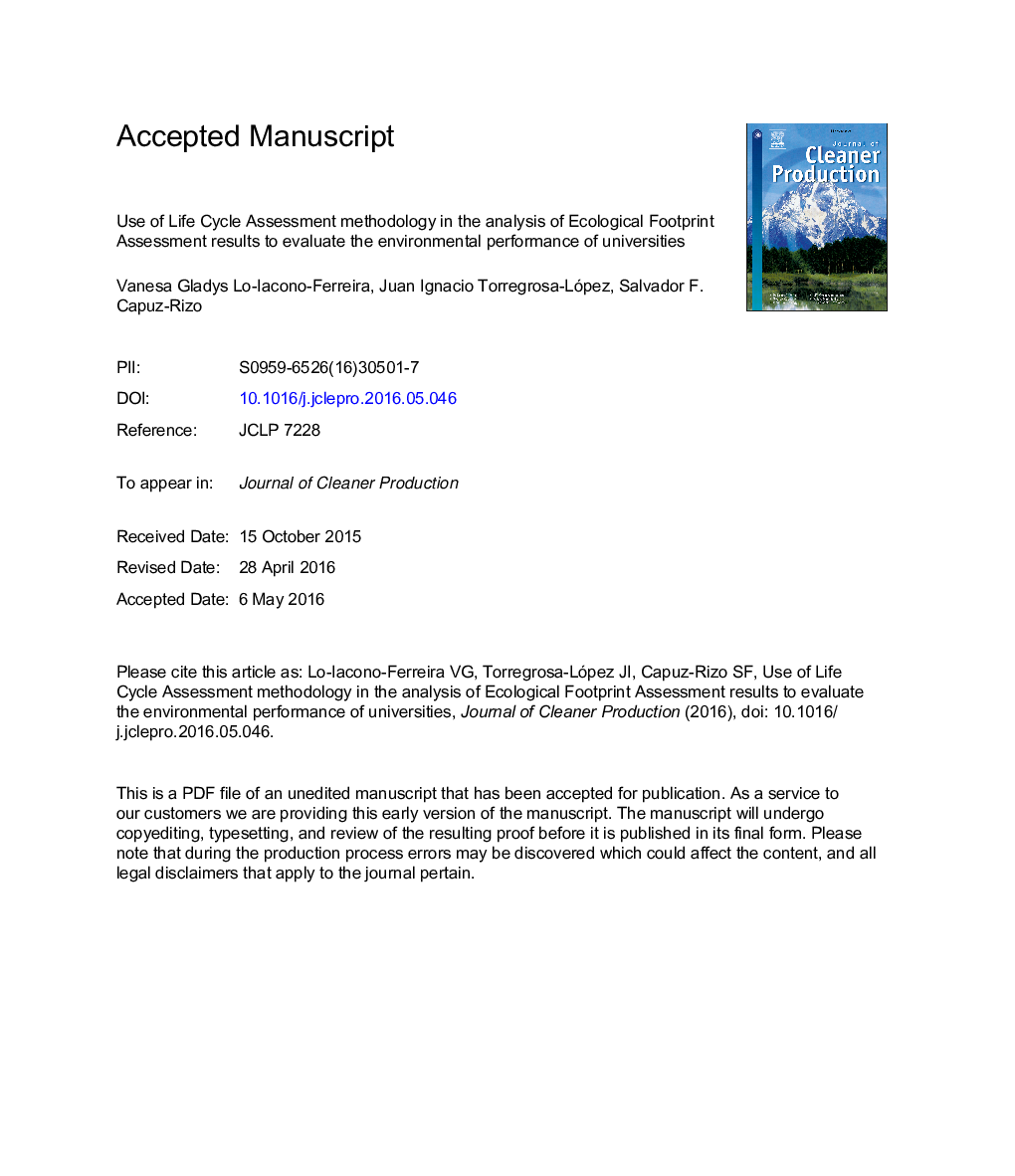| Article ID | Journal | Published Year | Pages | File Type |
|---|---|---|---|---|
| 8101378 | Journal of Cleaner Production | 2016 | 30 Pages |
Abstract
The assessment of the environmental performance of an organization is an essential part of the decision-making process of an Environmental Management System. Having robust indicators enables a reliable assessment. The Ecological Footprint Assessment is used in different types of organizations, including universities. Its ability to clearly communicate over-consumption by using a land-base unit is an advantage when involving the university community in achieving better environmental performance. However, its lack of standardization makes it difficult to use as an indicator. It is believed that Life Cycle Assessment offers a framework with which to standardize the Ecological Footprint Assessment. In this paper, an Ecological Footprint Assessment considering Life Cycle Assessment methodology is developed as a case study for Universitat Politècnica de València. Findings regarding the critical decisions of the methodology are compared with 23 Ecological Footprint Assessments of universities using a Life Cycle Assessment framework. Only 26% of the studies analyzed reference the Life Cycle Assessment methodology. Critical decisions such as defining a Functional Unit were relevant but not standardized, while the definition of the product system was the most standardized and homogeneous decision. The difficulty of gathering information when Environmental Management Systems are not available makes the Ecological Footprint Assessment a weak indicator. Nevertheless, results show that Life Cycle Assessment can guide an Ecological Footprint Assessment methodology where comparability and reliability is possible.
Related Topics
Physical Sciences and Engineering
Energy
Renewable Energy, Sustainability and the Environment
Authors
Vanesa G. Lo-Iacono-Ferreira, Juan Ignacio Torregrosa-López, Salvador F. Capuz-Rizo,
